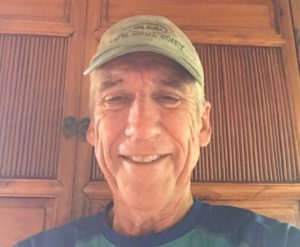For more than 27 years the state of Hawaii has maintained a labeling law (HRS 486-120.6) for âHawaii Coffee Blendsâ that encourages the deception of consumers. This Hawaii law has permitted the use of Hawaii origin names (âKona,â âMaui,â âKaâuâ and others) on packages of coffee containing 90% foreign-grown coffee.
The law does not require disclosure that 90% of these âblendsâ are foreign-grown, and almost all of the marketers of the âblendsâ do not make any such disclosure on the label. Rather, the marketers dress the labels with Hawaii regional names and Hawaii scenes (such as Diamond Head or traditional canoes) to mislead consumers as to what they are buying.
This coffee blend labeling law is an embarrassment for the state of Hawaii. We are the only state in the U.S. and the only region anywhere in the world that allows the use of its regional names on packages of one of its agricultural products with 90% foreign-grown content.
While other states actively protect their agricultural products from deceptive marketing and require 100% genuine content (for example, Idaho for Idaho Potatoes, or Vermont for its maple syrup), Hawaii invites deception.
In 2007 the Hawaii State Legislature adopted a resolution recognizing this embarrassment by making factual findings that: 1) âexisting labeling requirements for Kona coffee causes consumer fraud and degrades the âKona coffeeâ nameâ; and 2) âconfusion as to the difference between Kona coffee and Kona coffee blends caused Consumer Reports magazine to rate Kona coffee as âsecond rateâ.â

Despite these findings, the Legislature year after year has bowed to the economic and lobbying muscle of Honoluluâs coffee blenders and has failed to reform the law and has declined to enact basic principles of fair labeling.
By selling what amounts to $5 per pound coffee for as much as $25 per pound by merely putting the name âKonaâ or âMauiâ or âHawaiianâ on the label, the blenders are making millions of dollars each year in excess profits that are sent to corporate owners on the mainland. And they are exercising their political power to continue that stream of excess profits from the pockets of consumers.
Kona Farmers Lose Out
By way of example, in this yearâs 2019 Legislative Session, the three House members from West Hawaii introduced , a reasonable compromise bill to reform the labeling of Hawaii coffee blends â 51% minimum Hawaii-grown and identification of the origin of the foreign-grown coffee. The bill was passed through two House committees, and the full House, and was then sent to the Senate.
At the urging of the blenders, however, HB 144 was killed as the result of maneuvering in the Senate Agriculture Committee. So for at least another year, Hawaii will continue to be the only place in the world to encourage the marketing to consumers of a regionally identified agricultural product that contains only 10% grown in the named region.
The coffee blend labeling law is an embarrassment for Hawaii.
In addition to the adverse impact on consumers, it should also be understood that Hawaii coffee blends cause economic damage to Hawaiiâs farming community. A 2010 analysis of the economic effects of blending Kona coffee concluded that Kona coffee farmers were losing $14.4 million or more per year to the blenders. That is an average of almost $20,000 lost annually by the average 5-acre Kona coffee farm.
Also, a recent publication from the United Nations concerning various geographically identified food products concluded that Hawaii does not provide âstrong protectionâ for names like âKona coffeeâ and that as a result downstream stakeholders, rather than farmers, reap the âeconomic benefits of the fame of Kona.â
For a state that is concerned about growing its agricultural self-sufficiency to protect against the effects of possible emergency disruptions of commerce to the Islands, it is surprising that Hawaii is not more vigorously supporting its farmers.
Finally, it should be remembered that a significant number of consumer purchasers of Hawaii coffee âblendsâ are visitors to the islands and that their spending is an important pillar of the stateâs economy.
When those tourists later learn (as a fair number of them do) that what they bought thinking it was Hawaii-grown coffee was in fact 90% from somewhere else, their goodwill and affection for Hawaii is undercut. Consumers do not like being misled and cheated.
 Sign up for our FREE morning newsletter and face each day more informed.
Sign up for our FREE morning newsletter and face each day more informed.
Community Voices aims to encourage broad discussion on many topics of community interest. Itâs kind of a cross between Letters to the Editor and op-eds. This is your space to talk about important issues or interesting people who are making a difference in our world. Column lengths should be no more than 800 words and we need a current photo of the author and a bio. We welcome video commentary and other multimedia formats. Send to news@civilbeat.org. The opinions and information expressed in Community Voices are solely those of the authors and not Civil Beat.
We need your help.
Unfortunately, being named a finalist for a Pulitzer prize doesn’t make us immune to financial pressures. The fact is, our revenue hasnât kept pace with our need to grow,Ěý.
Civil Beat is a nonprofit, reader-supported newsroom based in ąá˛šˇÉ˛šžąĘťžą. Weâre looking to build a more resilient, diverse and deeply impactful media landscape, and we hope youâll help by .




